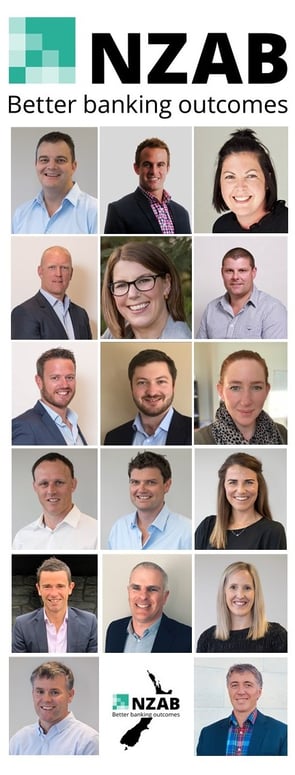
I was reading an article recently about the traits of some of the most engaged businesses based on a survey by Gallup. It was a global survey and started by noting that, “85% of employees are not engaged or actively disengaged at work. The economic consequences of this global "norm" are approximately $7 trillion in lost productivity”
Keeping in mind the NZ economy is about $USD200BN, that is staggering.
The article talked about the key traits of high engagement companies being:
Having a shared Mission – employees have a clear sense of where they are going and why and feel like they are on a journey together.
People Development - Hire and set them up for success. Care for them, share information with them, build a plan for them, coach both strengths and weaknesses, and provide meaningful feedback.
Valued Voice: Trust between co-workers and leaders is so high that both sides are open to communicating ideas and information to avoid problems and create new solutions
Earned Trust & Benevolence: They live their core values both internally and with the external market rewarding those who demonstrate them and not tolerating those who don’t. The customer base and employees genuinely believe that the company has their best interests at heart.
It got me thinking about farming
And in particular- how engagement levels have been lowered by financial stress (albeit now improving) and now increasing compliance - something highlighted in KPMG’s recent Agribusiness agenda with the following statement “ a sector that is fatigued, straining to cope with the wide range of issues that is having to respond to on a day-to-day basis with morale falling”.
So, what does engagement have to do with succession?
Well, everything we say.

Succession. A word that has spawned an entire industry.
I ran a quick google search on “succession in farming” and it lands with some typical definitions:
“Succession planning is a process that ensures transition of the family farm, from one generation to another”.
“Farm succession is a process that involves all members of the family and effectively provides for the family farming business to be transferred within the family on terms and conditions that are satisfactory to the parents, and which treats all children fairly …”.
“It's an inclusive plan that outlines the process for the transfer of both the financial and knowledge of the business, is deemed fair to everyone, is well communicated, agreed upon, understood and is monitored and reviewed”.
Now there is nothing wrong with those statements; They definitely do describe the process of succession. “Handed down”, “transferred”, “treated fairly”, “division of assets”, “Provides for parents” are all often quoted statements that are core to the process of succession.
But in our mind, they are missing the key ingredient of succession.
What I mean here is that we are exclusively focusing on the process of succession as the transfer or division of assets and potential income based on the individual needs of the parties - and to the detriment of not spending enough time preparing our faming businesses to be successful in the first place.
In other words, we are not striving hard enough to make them into great, highly engaging businesses right now that family are kicking down the door to be involved with in the future.
Traditional succession process starts this way - by first examining the key needs of each party - the parents, the next generation and so on and then trying to bring those needs together into a structure that suits all parties.
There’s nothing wrong with that., but it’s missing that key foundation principle first, “Is this actually a business that people want to participate in”?.
We have been involved in a few succession processes now and we are trying to redefine what succession is. Less about the divisions of assets and more on creating an intergenerational business that family members really want to participate in – whether it be ownership, governance, or even as an employee.
Its about pull, rather than drag. It is about creating something bigger than just that generation’s needs.
And all of this starts with how we see the family farm in the first place.
Do we see it as an asset and an income base that meets some needs of the family? Or do we see it as its own living breathing entity – with its own purpose and vision, its own organisational structure and its own set of values? Less about the individual and more about the business itself?
And why do we need to redefine it?
Well - it’s about engagement. Everyone wants to come and work for a great business. Everyone wants to work for an organisation that has purpose, values and is going places. No-one really wants to work for a business that is stagnating.
Succession, when looked at it this way, becomes continuous. It becomes a standing ethos in the business. If the business is always focused on being a great business, then it will attract family, other great talent, better (and cheaper) capital, more expansion opportunities and generate more profit and shareholder wealth.
It is that attractiveness of a “great business” that is the fundamental building block for succession. Because it means that instead of the conversation being “it’s time you took over the reins [son]” it becomes the opposite where the next generation is kicking down the door to be involved.

So, what are the ingredients to success of this?
Well, let’s stop thinking about this process as “transfer of assets” and instead think about this as “how do I grow a great business?”.
It’s a really different mindset.
Great businesses have these key elements
They have a purpose and a vision.
They know why they exist, what they are better at than anyone else and they know what problems (gaps) they’re trying to solve for the market they’re operating in, now and in the future.
Alongside that, when you have a strong sense of purpose, it means that the business is highly focused and driven – almost like a following.
Does your business have a 'WHY'?
In other words, “why does your business exist?”
Unfortunately, most organisations often start with “what they do?” or “how they do it”?. That’s not a vision. When you focus on “why”, it’s a much more powerful call to action for an organisation, including a farming business.
An example in a farming sense of each of the variations might be:
- We make heaps of profit per hectare (WHAT).
- We make heaps of profit per hectare by employing the best people and looking after the environment (HOW).
- We believe that by focusing on producing the most amount of profit per hectare, we’ll be able to attract the best people, be able to continually evolve our farming system to meet the changing needs of both our consumer and the environment we operate in (WHY).
Take a look at his video here where its best described by leadership expert Simon Sinek.
Setting purpose and vision is something that all the family can and should participate in.
They have a clear strategy
Man, the topic of strategy can be over complicated. Great strategy is taking your purpose or vision and building it into a road map to define how you are going to achieve success. It is refined by focusing on your competitive advantage (What you’re better at than most).
A strategy often has 4-5 focus areas or “strategic pillars” which feed into clear actions, clearly delegated, prioritised and objectively measurable.
A strategic plan is a highly collegiate document so it binds all parts (and people, including your family) of your organisation. In other words, everyone knows where the organisation is heading, who is doing what, and how they’ll know when they’ve achieved it.
Powerful stuff when done right and massive as part of a long-term succession plan.
They have great underlying operating performance.
Ultimately, these great businesses are very good at generating higher cash return on assets by being an efficient producer and have very good cost management.
Those businesses typically can generate more cash, have many more options with investment and growth and this ultimately come down to being a highly profitable operator.
They have a well-defined organisational structure- now and in the future.
“Organisational structure” is a system that outlines how certain activities are directed to achieve the goals of an organisation. These activities can include rules, roles, and responsibilities.
Typically, that means you are going to have some governance, senior management, and a workforce and probably some advisers that participate in certain areas where you do not have a skillset.
Organisational structure needs to be articulated - now and into the future by working out what roles will be required for the strategy to be implemented.
Often that means there will be a gap – possibly in roles, or possibly in capability. This dovetails beautifully into bringing family into the potential roles as well as how they might develop further.
Children don’t need to participate in all parts of the business either. Ultimately, the business needs to think about the skill gaps it has first (if at all) rather than trying to mash a son or daughter into an ill-fitting role. But that does not mean that they can’t grow into. That’s where setting personal development plans are so important so family and other employees have a chance to grow into future roles.
There is independence and outside expertise in the process.
Bringing all these things together is not easy. Keeping it together is even harder.
And it is impossible to do without outside facilitation.
Importantly, this facilitation needs to be focused on the entire journey of succession, right through from values and shareholder needs, to great strategy, to great profit and wealth creation and ultimately to shareholder return. This means not just having a defined business strategy but seeing it through as well.
So, if you are thinking about succession, start by redefining it.
Redefine it first by seeking to create a great inter-generational business.
Make this topic an enduring and living one in your farm business, something that is discussed at every governance meeting, not something you start 5-10 years out from your retirement
If great business = great engagement = great succession, then succession will solve itself.

Who is NZAB?
Farming’s very complex and you can’t be an expert in everything. That’s why the best farmers gather a specialist team around them. Our specialty is better banking outcomes for our clients.
There’s no one better to work alongside you and your bank. With a deep understanding of your operation and our considerable banking expertise, we can give you the confidence and control to do what you do best.
We’ve been operating for four years now and we’re right across New Zealand. For an introductory no cost chat, pick up the phone and talk directly to one of our specialists on 0800 NZAB 12.
Or if you prefer, Visit us at our website or email us directly on info@nzab.co.nz

